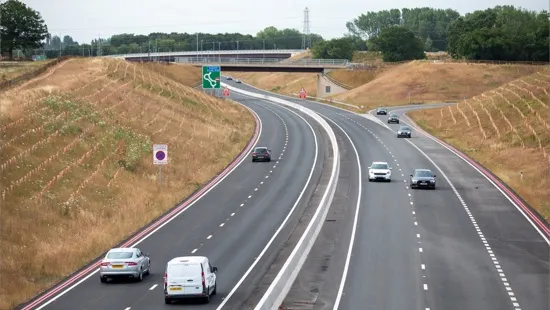According to the Swiss Federal Department of the Environment, Transport, Energy and Communications, the number of freight vehicles travelling by road through the Alps in 2010 increased by 77,000 to 1.257 million, matching the levels of 2007 and 2008.
February 22, 2012
Read time: 1 min

According to the 2970 Swiss Federal Department of the Environment, Transport, Energy and Communications, the number of freight vehicles travelling by road through the Alps in 2010 increased by 77,000 to 1.257 million, matching the levels of 2007 and 2008.
The goal by the end of 2011 is to reduce this number to a maximum of 1 million and to 650,000 in 2019 following the opening of the Gotthard Base Tunnel.
According to law if these levels are not achieved the2972 Swiss Federal Council will have to submit additional measures to achieve it. The Federal Council is to submit alternative proposals later in 2011.
In 2010 more goods were also transported across the Alps by rail, with 62.7% of all freight being transported through the Alps by train, compared to 60.9% in 2009.
The goal by the end of 2011 is to reduce this number to a maximum of 1 million and to 650,000 in 2019 following the opening of the Gotthard Base Tunnel.
According to law if these levels are not achieved the
In 2010 more goods were also transported across the Alps by rail, with 62.7% of all freight being transported through the Alps by train, compared to 60.9% in 2009.







